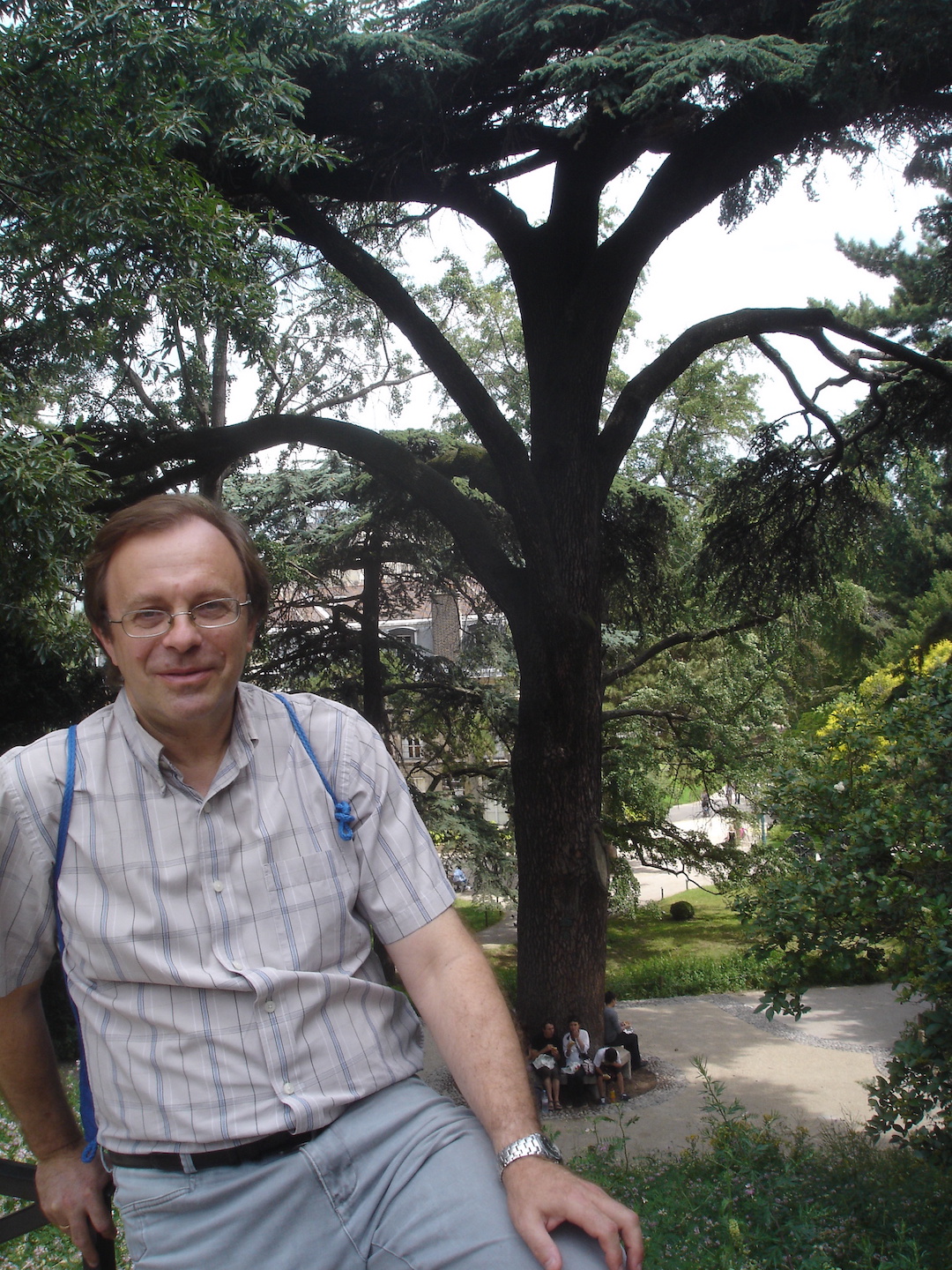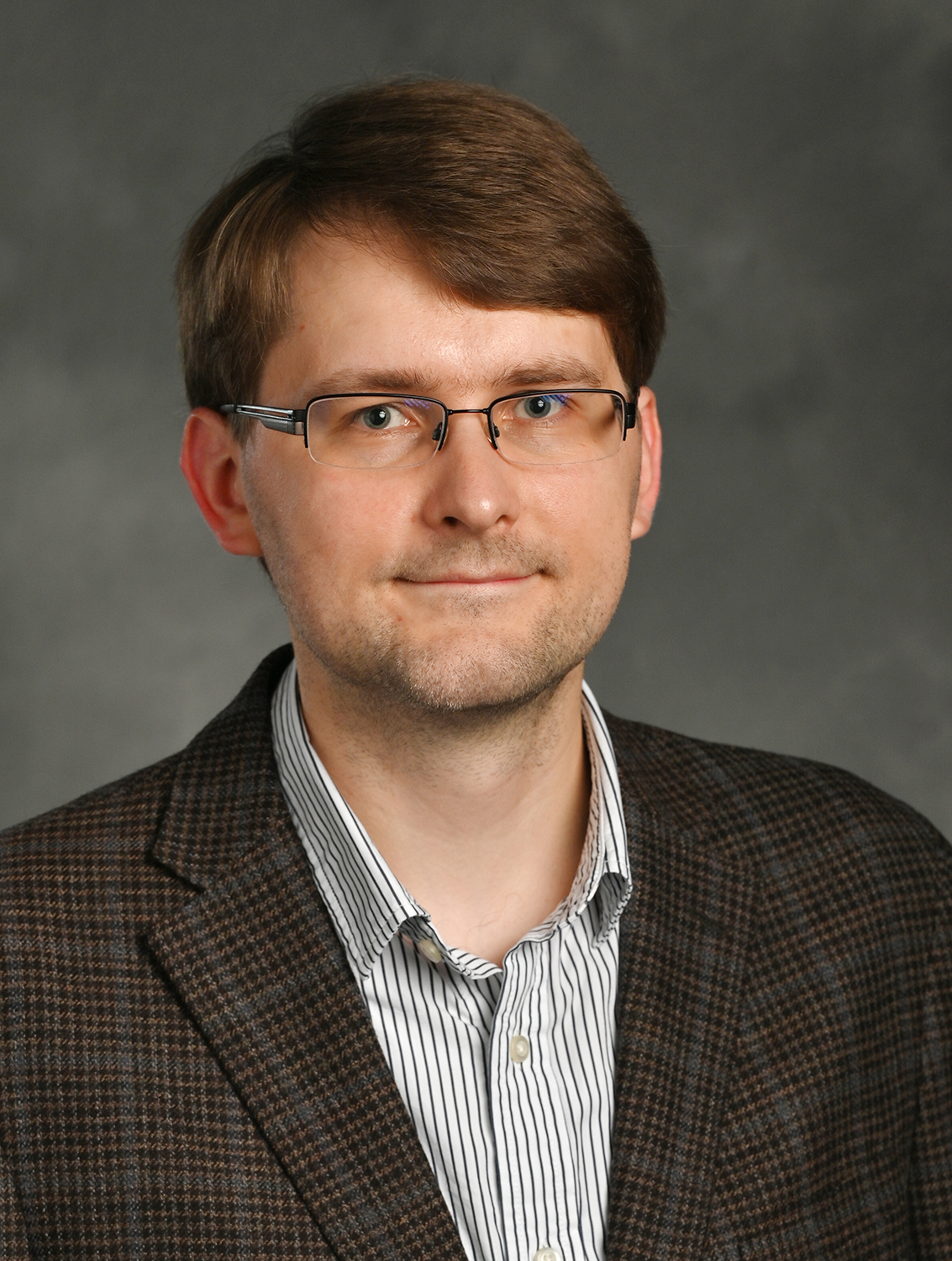Two MSU mathematics faculty receive Frontiers of Science awards
Two Michigan State University faculty, Alexander Volberg and Konstantin Matetski, were honored with Frontiers of Science Awards from the International Congress for Basic Science (ICBS) for their groundbreaking research in mathematics. These prestigious awards recognize outstanding scholarly achievements in basic science, emphasizing impactful contributions from the past decade.
The ICBS selects recipients across 42 areas within mathematics, theoretical physics, and theoretical computer and information sciences. Volberg and Matetski join a distinguished group of scientists recognized for their significant contributions to their respective fields.
Alexander Volberg: Unraveling the mysteries of mathematical smoothness

Alexander Volberg, a professor of mathematics in the College of Natural Science since 1991, received the award in the Mathematical Analysis category for his 2014 paper published in Acta Mathematica. Volberg has published over 200 research papers and garnered numerous accolades, including a Salem Prize, a Lars Onsager Medal and a Humboldt Foundation Professorship.
Volberg's award-winning paper resolved the 30-year-old David-Semmes conjecture, a well-known fundamental question concerning the relationship between the smoothness of certain mathematical operators (Calderón-Zygmund operators) and the potential roughness of the geometric objects (measures) they act upon. His work demonstrated that if these operators are well-behaved, the irregular parts of the geometry are constrained in specific ways.
This breakthrough has profound implications for understanding the interplay between analysis and geometry.
“While the specific results are highly theoretical, they contribute to a deeper understanding of geometric shapes and their properties,” Volberg said. “It lays a foundation that has the potential to impact a wide variety of future technologies.”
MSU and the College of Natural Sciences have facilitated many resources for Volberg over the years, including leveraging National Science Foundation (NSF) grants. “My research has benefited from the environment at MSU, giving space and time for the high-level theoretical work I’m interested in,” Volberg said. “Additionally, teaching and mentoring graduate students has been a highlight of my career — students push you to answer questions you might not otherwise think about, and in that process I’ve learned a lot from my students.”
Spending time with a variety of fields, Volberg’s work is now focused on the interaction between theoretical computer science and harmonic analysis, especially in the context of possible quantum algorithms.
Konstantin Matetski: Exploring the realm of randomness

Konstantin Matetski, an assistant professor of mathematics at MSU, was awarded the prize in the Probability Theory and Stochastic Analysis category for his 2021 paper published in Acta Mathematica. A 2022 Bernoulli Society New Researcher award winner, Matetski's research delves into the complex world of stochastic partial differential equations, including regularity structures, rough paths, integrable probability and the KPZ universality. His work contributes to the mathematical understanding of systems that evolve randomly over time.
"Getting a Frontiers of Science Award is a high honor for me,” Matetski said. “The award is extremely competitive, and being an author of one of the five papers in probability, which received the awards in 2024, means a lot about the opinion of the mathematical community about our work.”
The paper from Matetski and collaborators Jeremy Quastel and Daniel Remenik outlined the KPZ fixed point, a mathematical object that describes the universal behavior of random growing interfaces. These interfaces can be visualized as the leading edge of a fire, the boundary of a bacterial colony or even the edge of a coffee stain spreading on a napkin. The KPZ fixed point, named for the physicists Kardar, Parisi and Zhang who conjectured its existence, explains the common patterns observed in these seemingly disparate processes.
"Since the 1980’s the existence of this object was just conjecture,” Matetski said. “In our 2021 paper, my collaborators and I describe the KPZ fixed point for the first time. In other words, our paper explains what the universal behavior of those random growing interfaces is.”
Though the core of this work is theoretical, Matetski emphasized its role in deepening our understanding of the natural world. "We're uncovering the mathematical principles that govern seemingly random processes in nature," Matetski said. “There has also been significant progress in KPZ universality since our paper was published, and we’re excited to continue to be involved in this area of research.”
Matetski joined MSU in 2022 where his work has received support from the college’s collaborative environment and the assistance provided by the College of Natural Science Research Support Team. He hopes to build upon the momentum of this award and its underlying research to continue to make progress on challenging problems.
The Frontiers of Science Awards highlight the exceptional contributions of these MSU faculty members to their respective fields, underscoring the university's commitment to advancing fundamental scientific knowledge.